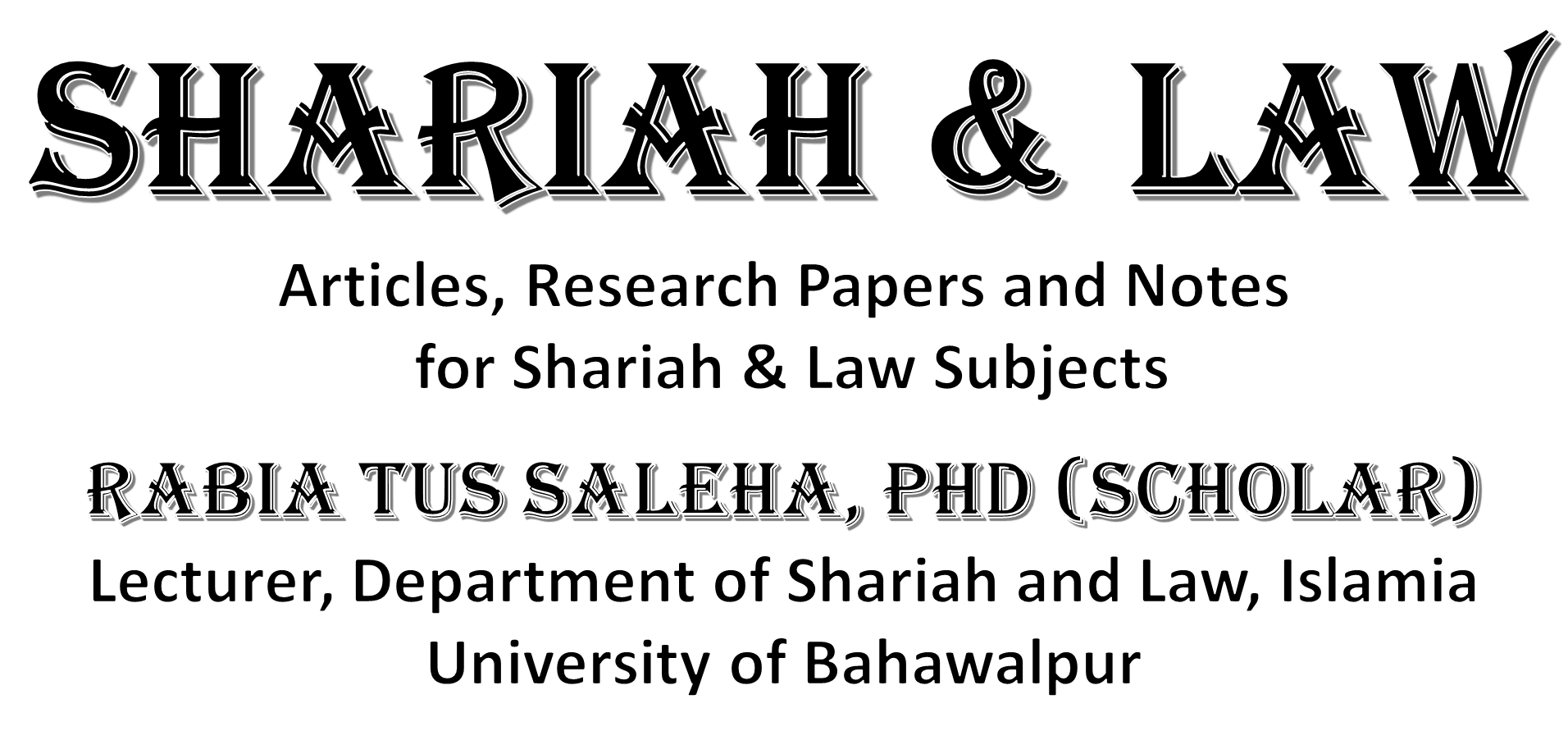Equity will not suffer a wrong without a remedy. (ubi jus ibi remedium)
There is no value of right without remedy or enforcement. The maxim must be taken as referring to rights that are suitable for judicial enforcement and for which remedy was not provided at common law owing to some technical defect. It should not be concluded that the Court of Chancery furnished a remedy for every moral wrong. This maxim “Equity will not suffer a wrong without a remedy” regards exclusive rights which come within a class of rights recognized at law, or capable of being judicially enforced without occasioning a greater detriment or inconvenience to the public. The common law could provide just damages in a simple contract to sell land. But damages could not be adequate relief and the plaintiff could not sue for specific performance.
Application: This maxim, “Equity will not suffer a wrong without a remedy“, is applied in the cases such as:
-
Violation of right: (The legal injury caused to the plaintiff without any damage)
Where the plaintiff’s legal right is violated but he suffers from no loss. Here maxim injuria sine demnum (the legal injury caused to the plaintiff without any damage to the physical injury) applies and a nominal or small amount of damages is awarded.
- If A trespasses on B’s property but no damage has occurred and A brings the tort case to Court, since no loss has happened, so Court will award nominal damages because the legal right of A is violated.
- Ashby vs. White: In the case of Ashby vs. White, the plaintiff was a legally qualified voter. The defendant was not allowed willfully, maliciously, or fraudulently to cast his vote. The legal right was infringed but there was no actual loss because the candidate was elected in the election.
- Constantine vs. Imperial: In another case Constantine vs. Imperial Hotel, the plaintiff was refused to allot accommodation in the hotel. The plaintiff got accommodation in another hotel. He received very nominal damages.
-
Where the defendant holds evidence:
Any document that was lying with the defendant and plaintiff was in need of it to present as evidence in Court but common law Courts were unable to get it discovered. Equity Court was in such a position to help the plaintiff in providing a remedy. (The auxiliary jurisdiction)
-
Uses and trust:
It is based on the principle that one has interfered in the enforcement of uses and trust.
- In a case A conveys the certain land to B for the benefit of C. If B misappropriates the trust property, the law cannot provide a remedy to C, a beneficiary. In this instance, equity interferes with providing a remedy to C. Since the wrong use of trust itself is injustice, it can be remedied in the Court of Equity. (The enforcement of trusts)
-
Interest of mortgagor: (Right of redemption)
In a mortgage transaction, the mortgagor agrees to pay the mortgage debt at a certain date and the mortgagee to re-convey the mortgage property to the mortgagor if his claim was paid by the due date. If the debt was not paid on or by the due date the property was forfeited to the mortgagee and the mortgagor was forever deprived of it although the value of the property was much more than the debt in lieu of which it became absolutely vested in the mortgagee.
The mortgagor in such cases had no remedy at law to recover his property, as common law did not recognize any right in favor of the mortgagor in the property after the date of payment. Equity took a different view. Equity Court held that the intention of the mortgage was not to forfeit the property but it was just security of debt given. If the mortgagor paid his debt even after the fixed date, he was entitled to recover the property.
Therefore, this maxim created the very important right known as the right of redemption. The equitable right of a mortgagor to redeem the mortgaged property after the legal right to redeem has been lost by default in repayment of the mortgage money at the due date.
-
Right of trusteeship:
- Common law Court does not recognize the rights of trusteeship.
- But in equity author/settlor of the trust is the supposed owner of the trust.
- If the trustee commits a breach of trust, the author can institute a suit for a remedy against the trustee for breach of trust.
- Equity regards the intent of the contract rather than its form.
-
Protection of the right of creditors:
This maxim applies in the cases where documentary evidence is lost.
- The creditor holds the receipt of debt which the debtor gives to the creditor. The creditor keeps the receipt in his safe custody. But there may be a case where such a receipt is misplaced or destroyed. (Where the creditor misplaces the receipt of debt).
- Common law does not provide a remedy in such a situation. Here equity provides a remedy to the aggrieved party such as the creditor who has a right of repayment.
- Since the equity Court is a Court of conscience therefore equity regards and keeps in view of facts rather than documents.
-
Enjoyment of right:
- Every person has a right to enjoy his rights within the limits that law prescribes.
- The owner of a certain land may construct a home on his land, which may include a window towards adjacent land. He enjoys air and light.
- Another person may build his own home which may cause prevention in the enjoyment of such rights, i.e., air and light.
- However prior builder suffers from injury by a subsequent builder, but it is not a violation of legal rights.
- Every person has a right of construction on his land and he may enjoy such construction.
- There may be a contrary situation where a prior builder has acquired a right of easement. Subsequent builder shall extinct his right.
-
Specific performance:
This maxim also applies in cases where a right of specific performance is granted. Such a grant follows the rules of equity.
Limitation: There are three limitations to this maxim such as:
-
Legal rights:
- The only violation of legal rights is subject to equity.
- The principles of this maxim apply where a breach of a legal right is committed, and then equity provides a sufficient remedy.
- Equity cannot provide a remedy merely for a breach of moral right. Courts regard only those violations against which they enforce rights.
- Where equity does not recognize right, equity does not provide a remedy. (Right must be recognized by equity).
-
Where jurisdiction of common Court lies: (both right and remedy are available)
- Equity does not provide relief where both right and remedy are available under the common Court. This means that the equity court fails where the jurisdiction of the common law court is available.
-
Negligence of party:
- The law helps those who help themselves. Law aids the vigilant and not the indolent.
- The plaintiff is as responsible for protecting his rights as the courts are. Neither plaintiff has to destroy his evidence nor he has to allow others to destroy evidence. Where his negligence destroys evidence or he waives off his right, equity shall not provide a remedy.
- Equity courts become unable where a party destroys or lets the other party destroy evidence.
This whole discussion leads to the result that “Equity will not suffer a wrong without a remedy“. A person must be remedied under the maxim if his right has been violated.
Second Maxim: https://shariahandlaw.com/equity-follows-the-law/
Short notes for the “Sources of The British Constitution” are also available: https://shariahandlaw.com/sources-of-the-british-constitution-shariahlaw/


1 thought on “1.Equity will not suffer a wrong without remedy.”